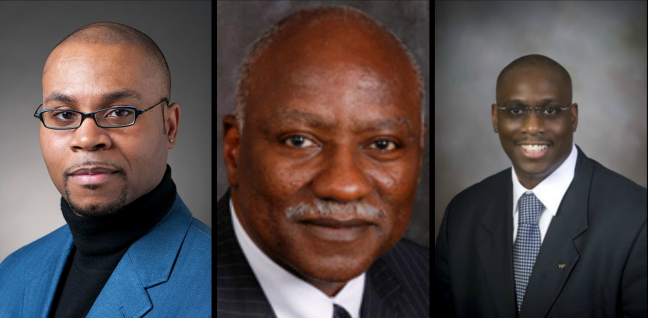A 15-member committee composed of University of Wisconsin faculty, students and staff recently selected William Lewis, Ron Quincy and current interim Vice Provost Patrick Sims as finalists for the vice provost for diversity position.
According to a university statement released last week, the vice provost for diversity works alongside Provost Sarah Mangelsdorf and provides guidance on issues of diversity, equity and inclusion to administration.
Sims, who’s occupied the interim position since 2013, is a UW professor of theatre and is the founding director of the Theatre for Cultural and Social Awareness. He also teaches ethnic studies courses for his department. As someone with prior experience in the position, Sims said he gained an intimate knowledge of the office.
Sims said he brings a unique perspective mindful of UW and its shared governance, and has been intimately involved with diversity issues since coming to UW.
“One of the biggest challenges we have is campus climate,” Sims said. “I’m really interested in having a space where people can have a conversation and address their own biases.”
Sims also advocated for the continued conversation around diversity to all aspects of campus.
“I’m willing to be at the table to listen, share and offer feedback,” Sims said. “I’m not interested in political correct commentary; I’m interested in people being truthful. I want to create more experiences where we can practice that kind of dialogue and share that creative feedback and also understand.”
William Lewis, the vice president for the Office of Diversity and Inclusion at Virginia Tech, a campus of 30,000 students, said his work has prepared him to take on the position at UW.
Lewis said expanding the campus conversation on diversity to include globalization would allow UW students to graduate with global competency, something he said is increasingly important in the job market.
In light of major diversity issues on campus, Lewis said dialogue is key.
He said the university must engage the entire student body in a robust conversation around social justice, privilege and marginalization. To aid in this effort, he said he would work to create allies for social justice.
“Every student should be in a space around social justice,” Lewis said. “Every student should feel it is their responsibility to engage in the dialogue.”
Quincy, a professor and former founding director for Nonprofit Management and Governance in the School of Social Work at Rutgers, said his vision is to work toward building a diverse university capable of producing excellent scholarship.
Quincy said his goal is to work with various partners and external stakeholders to increase the number of underrepresented minorities within the student body, as well as faculty at all levels.
Quincy said during the events surrounding Ferguson, he went there to speak with residents to better understand their grievances. From this experience, he said communication is vital to any progress in issues of diversity.
“On campuses, I think one of the key components of solutions is to start with broadening our communication channels and making sure that at every level of our institutional fabric, we are building diversity,” Quincy said.
The three candidates will present to the campus and public from April 13 through 16.














